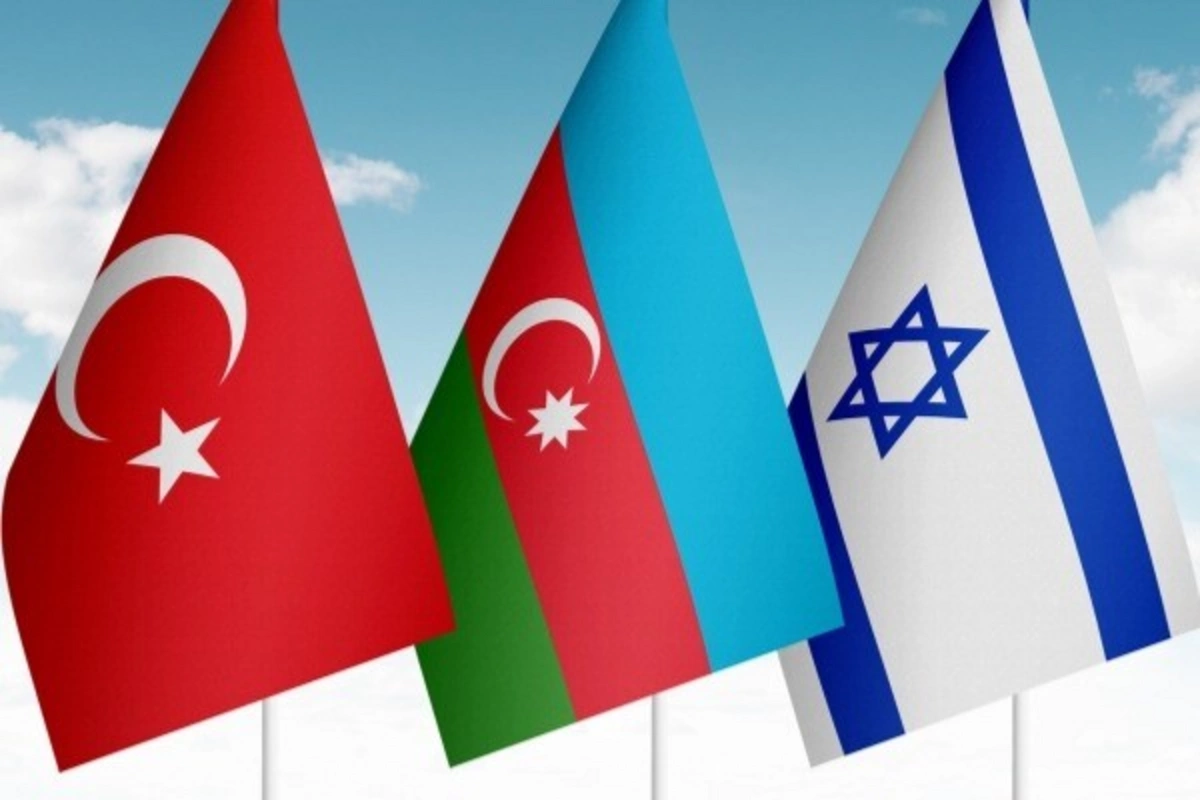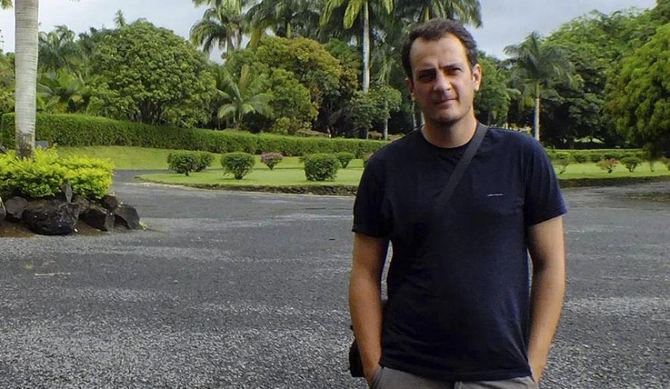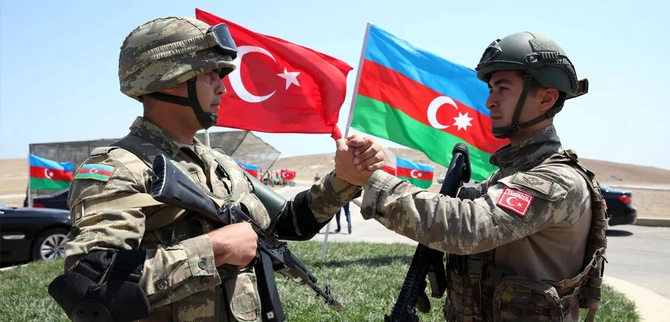
Photo: meforum.org
The Middle East region is constantly grappling with new challenges and threats. According to recent reports in the Israeli media, the Nagel Committee-a special commission established by the Israeli government in August 2024 to assess the defense budget and national security issues-has released a report highlighting a potential confrontation with Türkiye. As reported by The Jerusalem Post, this threat largely stems from Ankara’s alleged ambition to revive its influence in the spirit of the former Ottoman Empire, as well as the possibility of waging a “proxy war” in Syria.
The Nagel Committee recommends that Israel significantly increase defense spending, procure additional aircraft and combat drones, strengthen its air defense systems, and construct a protective barrier along the Jordan Valley. Experts warn that if Türkiye aligns itself with Syrian factions, it could spark an escalation that may prove “even more dangerous than the Iranian threat.”
Against this backdrop, the question increasingly arises: Does Israel truly have valid grounds to prepare for war with Türkiye, or are we witnessing a strategic move aimed at boosting Israel’s regional standing and justifying an increased defense budget?
In an interview with The Caspian Post, Turkish political analyst Engin Özer noted that Benjamin Netanyahu, Israel’s Prime Minister, has repeatedly used classic political methods that revolve around creating the image of an “external enemy.”
“In practice, it works like this: he constantly points to a threat from outside, telling Israeli voters that Israel is supposedly at risk of being attacked. Then, under the pretext of ‘preemptive self-defense,’ military actions begin, and Netanyahu often positions himself as the defender or ‘hero’ of the Jewish state.
A similar tactic has been used against Hezbollah and other groups. It is believed that in the near future, Israel is indeed preparing an air operation against Iran. This is widely discussed in various sources and serves as a basis for increasing military spending. Now, Türkiye is being used as another ‘fear tactic.’ According to Netanyahu’s statements, Ankara is allegedly planning to unite the radical opposition in Syria and attack Israel,” the expert said.

However, such a scenario seems unlikely, Engin Özer asserts.
“First of all, from the very beginning of the Syrian conflict, Türkiye has supported the Syrian National Army in the north of the country, not any groups operating in the south. Moreover, Israel itself is increasingly expanding its military presence in Syria, starting from the Golan Heights. It is reported that under Netanyahu’s orders, hundreds of military facilities in Syria have already been destroyed, and on the ground, Israel continues to engage with various ethnic and religious minorities, effectively contributing to the further fragmentation of the country.
In parallel, Tel Aviv pursues close military and technological cooperation with Kurdish forces that are fighting against Türkiye. Israeli officials, including members of Netanyahu’s family, have repeatedly stated that they consider supporting the Kurds a strategic tool against Ankara. Furthermore, it is known that Israel maintains contacts with Iraqi Kurdistan and YPG formations in Syria.
Thus, Netanyahu’s current statements about a ‘new external threat’ are merely one of the instruments that allow him to strengthen his influence within Israel by stoking fears and justifying further military campaigns,” the Turkish political analyst explained.
In today’s geopolitical landscape, Azerbaijan has established itself as an important regional player, maintaining close ties with several key powers. In particular, Türkiye is Azerbaijan’s strategic ally, while Israel is no less significant a partner. These relationships not only bolster Baku’s defense capabilities and international standing but also exert a serious influence on the overall balance of power in the Caucasus and the Middle East.
For decades, Azerbaijan-Türkiye relations have been described by the formula “one nation, two states.” Türkiye has consistently supported Azerbaijan throughout all significant stages of its national history, and especially vigorously during the Patriotic War (the Second Karabakh War), when Ankara provided both diplomatic and military assistance. Turkish weaponry and technical support played a notable role in the successes of the Azerbaijani army, further solidifying the allied ties between Baku and Ankara.

Photo: TRT Istanbul
At the same time, Azerbaijan has developed extensive cooperation with Israel, which also provided substantial support to Baku during the Patriotic War. Tel Aviv is one of the main suppliers of high-tech weapons and defense systems, helping Azerbaijan modernize its army and strengthen its defense capabilities. Moreover, the two countries maintain robust economic relations: Israel is one of the largest purchasers of Azerbaijani oil.
Today, as periodic reports emerge on the international stage about possible conflicts involving Türkiye and Israel, Azerbaijan is objectively interested in preserving positive relations with both of its key partners. Any confrontation between Ankara and Tel Aviv would pose a serious challenge for Baku, which enjoys the closest defense and security ties with these states.
In a situation where the risk of escalation persists between two of its closest friends, Azerbaijan has every opportunity to use its diplomatic channels to resolve any potential disputes. Such an active stance would not only serve Baku’s own interests-by preserving strategic arms supply lines and safeguarding national security-but would also align with broader goals for regional stability.
While some media outlets and experts debate the likelihood of tensions escalating between Türkiye and Israel, this scenario is highly undesirable for Azerbaijan. Baku’s bilateral ties with both Türkiye and Israel are paramount in military, economic, and political terms. Consequently, a logical step for Azerbaijan could be to initiate mediation efforts aimed at reducing the risk of open confrontation between its two strategic partners.
Thus, the possibility of a diplomatic mission designed to avert any conflict between Ankara and Tel Aviv offers Baku a path to an even more prominent role on the international stage. After all, peace and stability between Türkiye and Israel would benefit not only Azerbaijan itself but also the wider region, which directly depends on the balance of power and arms supply routes.
Share on social media